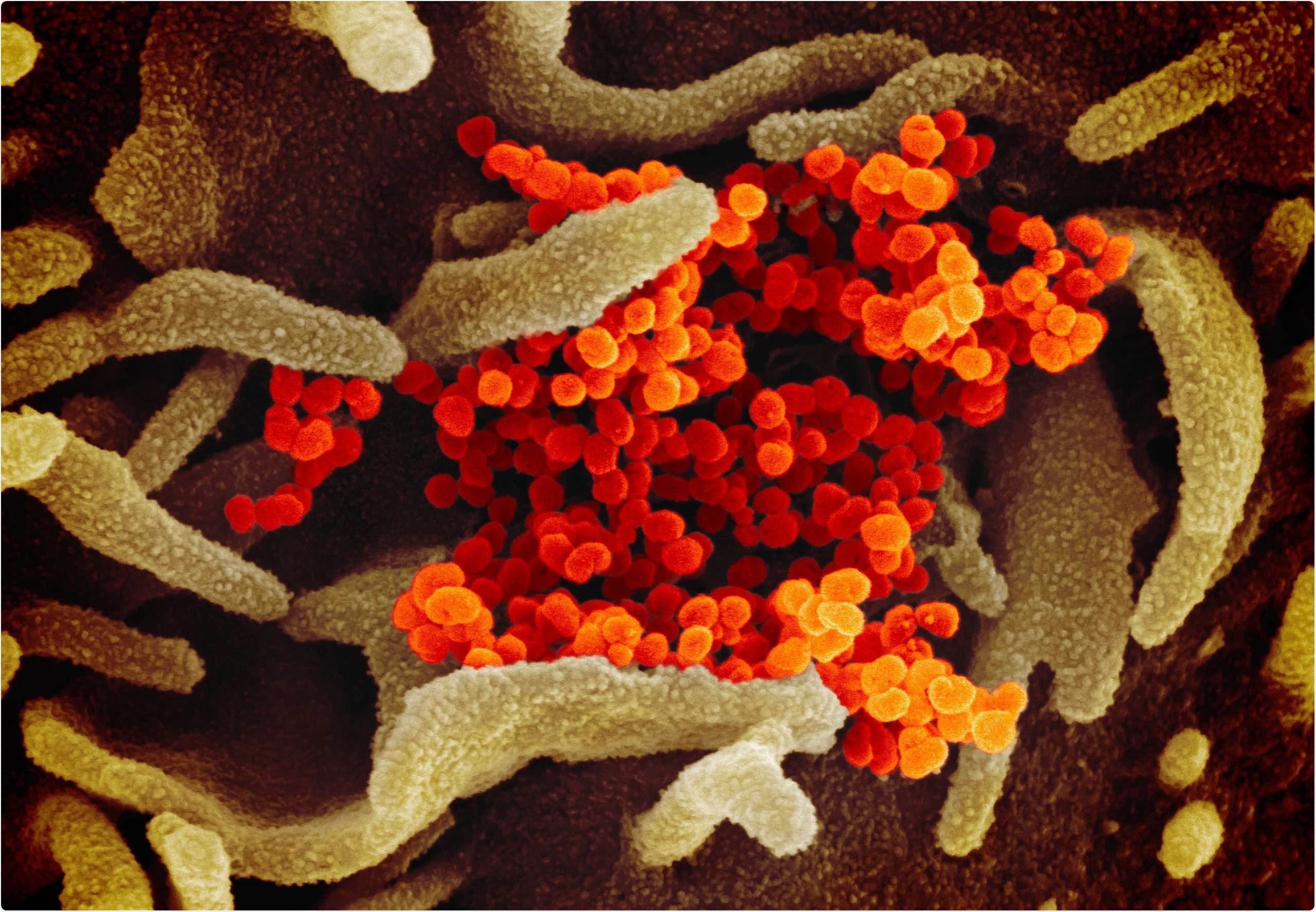The coronavirus pandemic has spread swiftly to almost every corner of the world, infecting more than 23.57 million people and claiming at least 811,000 lives. Early in the pandemic, there was limited data on whether being infected would provide long-lasting immunity against the severe acute respiratory syndrome coronavirus 2 (SARS-CoV-2), the virus that causes the coronavirus disease (COVID-19).

This scanning electron microscope image shows SARS-CoV-2 (orange)—also known as 2019-nCoV, the virus that causes COVID-19—isolated from a patient in the U.S., emerging from the surface of cells (green) cultured in the lab. Image captured and colorized at NIAID's Rocky Mountain Laboratories (RML) in Hamilton, Montana. Credit: NIAID
Previous reports of re-infection were noted in several countries, but a definite conclusion of whether it could occur was still unclear. Some experts said that detecting the virus again may mean that these are virus particles or remnants and are not infectious.
Now, a recent report says that a man in Hong Kong is the world's first case of SARS-CoV-2 re-infection.
A team of researchers at the University of Hong Kong said that they have proven that a 33-year-old man was infected by the SARS-CoV-2 virus for a second time. The man was discharged from a hospital in April but contracted the infection again after returning from Spain via the United Kingdom in August.
The man had symptoms the first time around, but for his second bout of infection, he was asymptomatic. The preprint study, which has been accepted for publication in the journal Clinical Infectious Diseases, confirmed that the man was re-infected 142 days after his first bout.
Is re-infection possible?
The researchers said that many believed that COVID-19 patients who have recovered develop immunity against re-infection since they developed a serum neutralizing antibody response.
However, as the pandemic evolved, there is evidence that some patients have waning antibody levels after a few months, suggesting that SARS-CoV-2 may persist in the human population, akin to common cold-associated human coronaviruses, even if patients have acquired antibody level after several months.
The case of the man in Hong Kong also shows that for him, his immunity for the virus is short-lived, since he was re-infected 4.5 months after his first infection.
"There are reports that the virus RNA can wax and wane in the respiratory secretions of convalescent patients for up to three months. It is unclear whether these patients are prolonged virus shedders or have re-infection by another strain of SARS-CoV-2 as no viral genome sequencing is performed to differentiate these two possibilities," the researchers said.
The study
The researchers found that viral genomes from the first and second infections belong to different lineages. Overall, a total of 24 nucleotides differ between the viruses from the patient's first and second episodes of the infection. Further, amino acid differences are seen in nine proteins, including A 58-amino acid truncation of ORF8 protein that was only present in the first episode.
According to the genetic analysis conducted by the team, the first infection was a strain of SARS-CoV-2 most closely related to the strains from England or the United States. Meanwhile, the second infection was closely related to strains from England and Switzerland.
Herd immunity is unlikely
The researchers suggest that herd immunity is unlikely to eliminated COVID-19 on its own. Also, a potential vaccine against SARS-CoV-2 may not provide lifelong immunity to the infection.
"Since the immunity can be short-lasting after natural infection, vaccination should also be considered for those with one episode of the infection. Patients with previous COVID-19 infection should also comply with epidemiological control measures such as universal masking and social distancing.
The researchers emphasized that those who have recovered from the illness should not be complacent in terms of public health measures. Recovered patients should still practice proper hand hygiene, physical distancing, and wearing of masks in public places.
However, health experts say that the case is rare and other cases across the globe have not experienced re-infection even after three months after recovering.
"Given the number of global infections to date, seeing one case of re-infection is not that surprising even if it is a very rare occurrence," Dr. Jeffrey Barrett, senior scientific consultant for the Covid-19 genome project at the Wellcome Sanger Institute, said.
"It may be that second infections, when they do occur, are not serious - though we don't know whether this person was infectious during their second episode," he added.